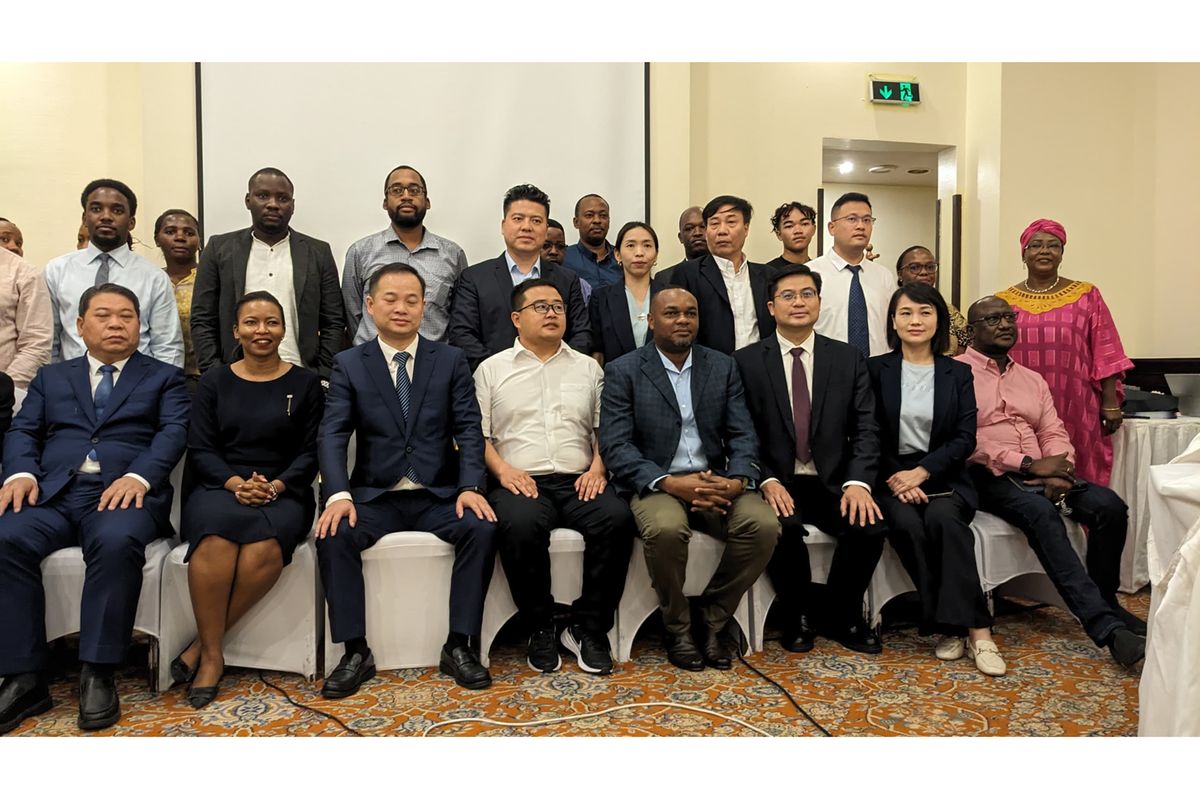Dar es Salaam. Jumuiya ya wafanyabiashara katika Manispaa ya Shaoyang nchini China, imesema inalenga kushirikiana na wenzao wa Tanzania ili kukuza uhusiano uliopo kibiashara baina ya nchi hizo.
Kadhalika, imedokeza mpango wa kuanzisha ghala la bidhaa zake nchini, litakalotumika kupokea bidhaa za mitambo na umeme kutoka China.
Hayo yameelezwa leo Alhamisi, Mei 23, 2024 na Naibu Meya ya jiji hilo, He Yuan katika kikao chake na jumuiya za wafanyabiashara waliopo nchini Tanzania.
Amesema pamoja na mambo mengine mkutano huo pia, umelenga kubadilishana mawazo ya biashara na kutambua fursa zilizopo katika masoko ya kimataifa.
Kwa mujibu wa naibu meya huyo, jiji hilo lipo katika mpango wa kuanzisha ghala nje ya nchi ili kusaidia usafirishaji wa bidhaa za mitambo na umeme na kujumuisha bidhaa nyepesi za viwandani.
“Pamoja na mazao ya kilimo ya Tanzania kama vile asali na chai, bidhaa za walaji kama vile vito na viungo, zote ni sehemu kuu za muunganiko na fursa muhimu za ushirikiano kati ya pande mbili,” amesema.
Katika hotuba yake hiyo, amesema kiwango cha biashara kimekuwa kati ya nchi hizo, kutoka Yuan 103,000 (sawa na Sh36 milioni) hadi Yuan milioni 140 (sawa na Sh50 bilioni) ya sasa.
“Idadi kutoka kwa utendaji halisi iliongezeka kutoka 1 hadi 39, bidhaa tatu za juu za kuagiza na kuuza nje zilikuwa za mitambo na umeme, mifuko na masanduku na njiti,” amesema.
Kwa upande mwingine, Mkurugenzi Zeing Jianping wa Ofisi ya Biashara ya Manispaa ya Shaoyang ameeleza mipango ya kupanua ghala lao la mtandao nchini.
Amesema mpango huo, unalenga kuleta bidhaa nyingi za Shaoyang katika soko la Tanzania na hivyo kuimarisha mtandao wa biashara ya mtandaoni.
“Tanzania hapa tuna mjumbe, anafanya kazi ya kuwa na ghala Dar es Salaam, hapo baadaye ghala hili kupitia mjumbe wetu litaleta bidhaa nyingi za Shaoyang Tanzania, hivyo mtandao wa biashara mtandao na ghala umekuwa ukipanuka,” alieleza.
Akiozungumza katika mkutano huo, Mkuu wa Chemba ya Wafanyabiashara wenye Viwanda na Kilimo Tanzania (TCCIA) Wilaya ya Kinondoni, Anthony Mbunda amesisitiza umuhimu wa jukwaa hilo katika kuwezesha ushirikiano kati ya wafanyabiashara wa ndani na nje ya nchi.
“Wafanyabiashara wa China wanapokuja hapa, wanakuja kama wawekezaji. Kama wawekezaji, wanatupa fursa. Sasa tuna faida ya kujifunza kutoka kwao. Wakija wanaleta teknolojia zao, na watu wetu watapata nafasi ya kufundishwa teknolojia hizi,” ameeleza.
Mjasiriamali aliyebobea katika vipodozi vya asili kutoka Ilala, Zaynab Issa amesema kuna faida za kiuchumi za kusafirisha bidhaa za ndani kwenye masoko ya kimataifa.
“Fikiria kama leo, mimi kama mfanyabiashara ningeweza kuuza nje bidhaa zangu za ndani kwenye masoko ya kimataifa. Hii ina maana tunakuza uchumi wa nchi. Hata hivyo, pia ni kipengele muhimu kitakachorahisisha ufikiaji wa nyenzo ambazo ni adimu kwetu, na wakati mwingine nyenzo zingine hazipatikani kwao. Hapo ndipo umuhimu wa ushirikiano unapokuja,” anafafanua.
Source: mwananchi.co.tz














